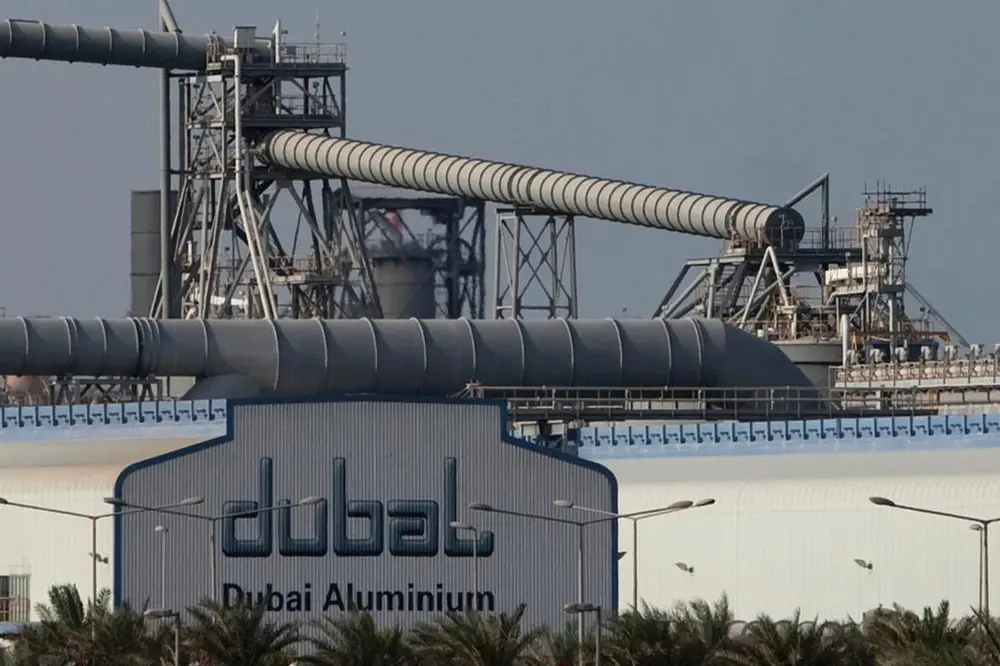PHOTO
DUBAI, 22nd November, 2016 (WAM)-- Lower oil prices have created economic pressure in in the members of the Cooperation Council for the Arab States of the Gulf, GCC, by impacting revenues while also creating opportunities, Abdulla Jassem bin Kalban, MD and CEO of Emirates Global Aluminium, said and noted that "the greatest success story is industrialisation through the GCC aluminium industry.""Economic growth across the GCC is nevertheless still in line with the global average. The UAE economy grew by a healthy 3.9 per cent in 2015, and is forecast at the same level for 2016," he said at the opening of Arab International Aluminium Conference on Tuesday. The event is hosted by EGA for the sixth time and will run until 24th November .
The next big driver of the GCCs economic diversification will be further non-oil private sector growth, Kalban said. This, according to the official, will involve continued infrastructure development; strategic development of SMEs; trade and foreign investment; and encouraging more nationals to work in the private sector. "In the UAE, economic diversification has also been driven by huge investments in business, tourism and real estate. Today, the UAE economy is the most diversified in the Middle East."Continued diversification across the GCC is important for economic and social stability these are key for long-term prosperity, he said, and noted that most of the GCC population is under 25 years old. "These young people can potentially be drawn into private sector employment or encouraged to become entrepreneurs and operate SMEs."To maintain a balanced budget, the UAE federal government has set a spending target of AED 48.5 billion for 2016, he noted, and said several infrastructure projects are continuing. While social welfare remains a priority, economic diversification away from oil remains key, Kalban noted. Describing "industrialisation through the GCC aluminium industry" as the region's "greatest success story", he said it began with one smelter in Bahrain in 1971, producing 120,000 tonnes per year. "Today, there are six smelters in five GCC states. The GCC smelters produced 5.27 million tonnes in 2015 - about 10 per cent of the global total."Speaking about the environmental performance of the GCC smelters exceptionally strong, he said the EGA had achieved a 15 per cent reduction in greenhouse gas emissions since 2009 and a reduction of 46 per cent in fluoride emissions. "EGA has a 53.3 per cent share of the total primary aluminium production in the GCC; and theres been 8.4 per cent growth in sales to the local market," Kalban added. There are 27 downstream aluminium plants in the GCC, of which about 50 per cent are in the UAE. We are seeing pleasing growth in the downstream sector - especially in the Khalifa Industrial Zone Abu Dhabi (Kizad). New industries, in turn, are creating jobs, developing skills and further diversifying the economy. All six smelters are the industrial flagships of their respective countries, contributing substantially to non-oil GDP, he said. "The GCC primary aluminium industry provides direct employment to 14,000 people, and indirect employment to another 45,000 people. These are jobs for nationals and expats alike. And all six smelters invest substantially in training their people; as well as in their communities."The gap between male-to-female labour force participation in the GCC states is shrinking, the MD and CEO of EGA said. "By enrolling women in colleges and universities, and making it easier for women to join the labour force, more and more women are working. More than 1,200 ladies are employed at EGA alone."The 20th Arab International Aluminium Conference (ARABAL), the Middle Easts premier aluminium industry gathering, was opened by H.H. Sheikh Hamdan bin Rashid Al Maktoum, Deputy Ruler of Dubai, UAE Minister of Finance, and Chairman of Dubai Aluminium (DUBAL), in Dubai today.Copyright Emirates News Agency (WAM) 2016.





















